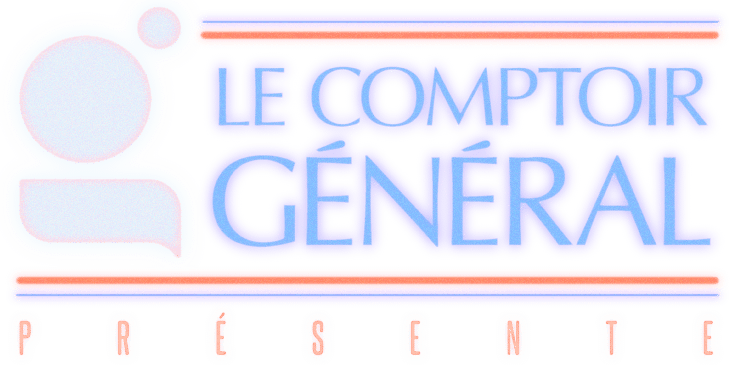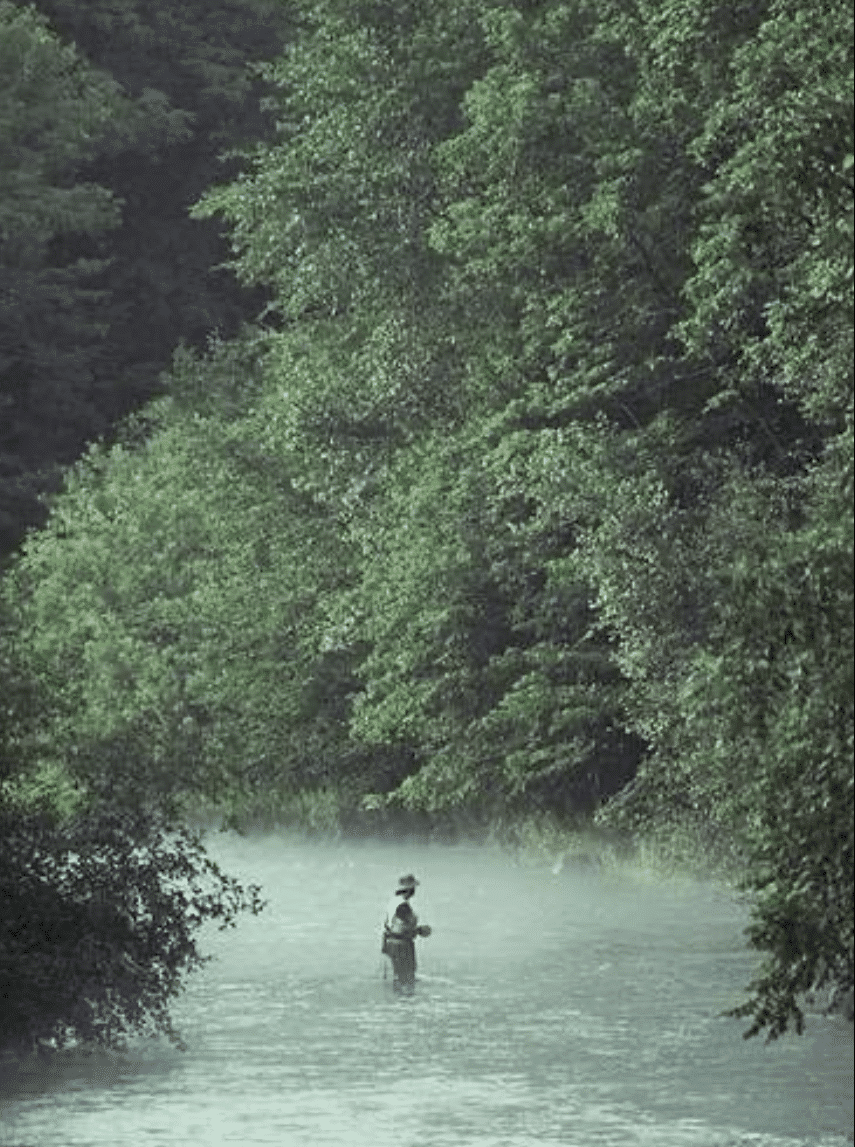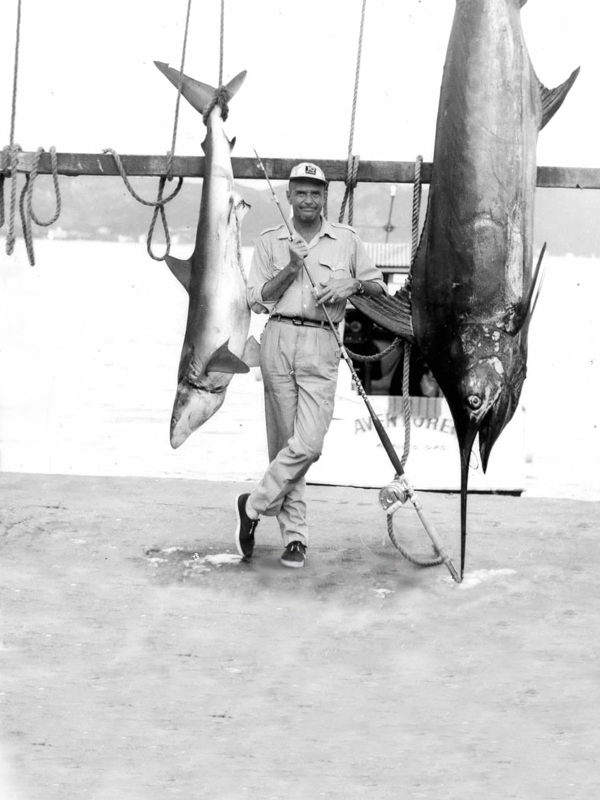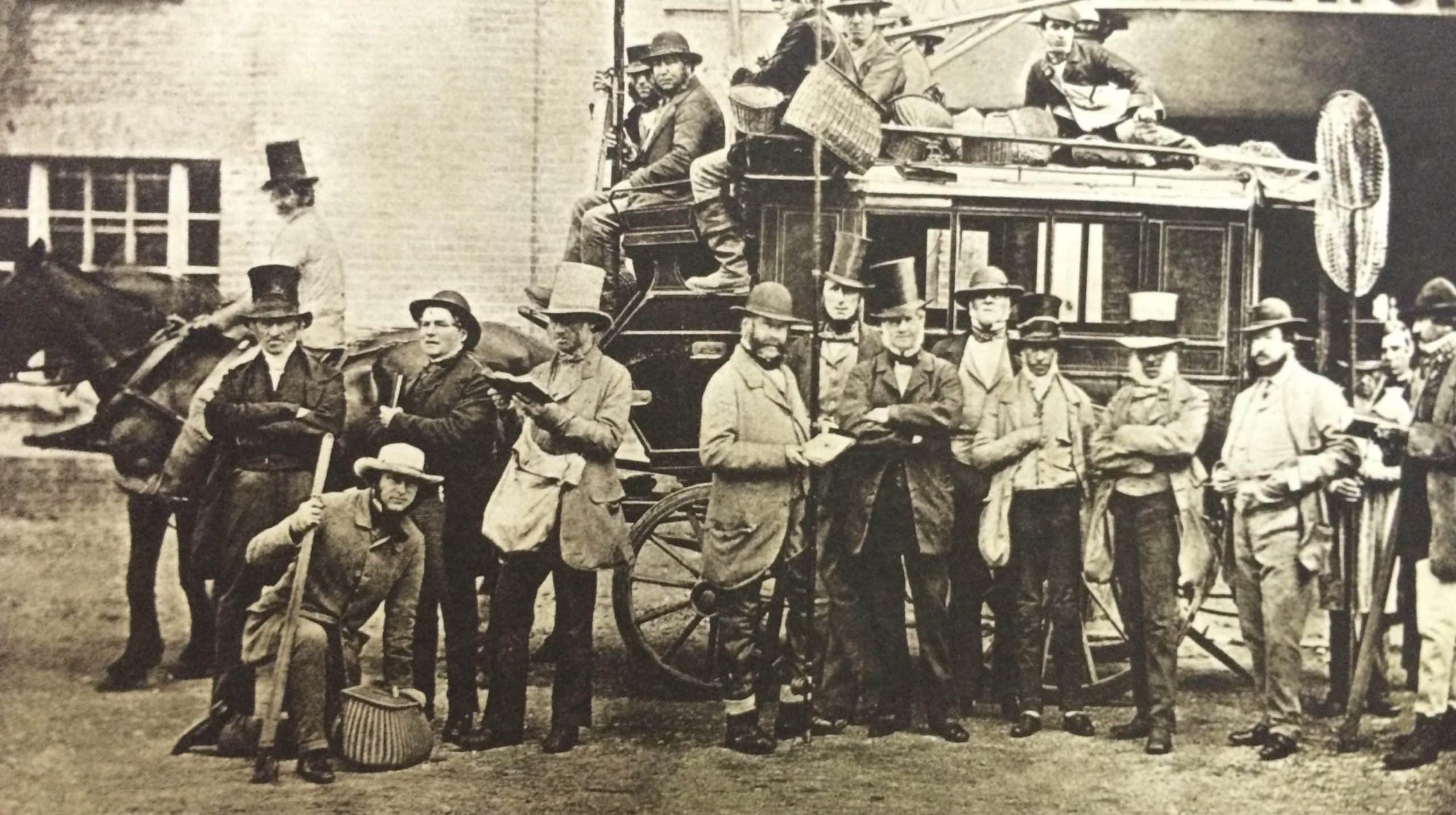
Fishing trips
Fishing trips

The grass is always greener on the other side of the valley… And even if there are still beautiful fish in some of our lakes and rivers, adventurous or simply curious fishermen do not hesitate to go on fishing trips and travel far to satisfy their passion.
Far does not necessarily mean abroad and foreign does not necessarily mean far from France. Let’s not forget that before the beginning of the sixties of the last century, going fishing from Paris, Lille, Lyon or Marseille, salmon in the Haut-Allier or on the Gave d’Oloron, was a small expedition. Nevertheless, some of our parents and grandparents, with the democratization and the development of air transport, were going to discover in the immediate post-war period, the tourist fishing such as we know it today, in the neighbouring European countries like Scotland, Ireland or Austria, and even from the 80’s, Alaska, Australia or Canada.
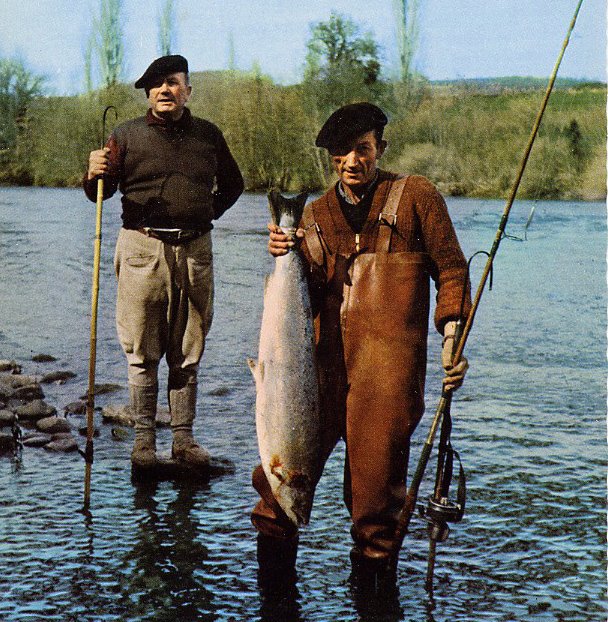
On the Gave d'Oloron, in the early sixties.
Fishing trips in Europe and in the world.
Let us note here that the development of modern means of transportation such as the automobile and the airplane, as well as their generalization, coincide quite well chronologically, without there being a cause and effect relationship, with the impoverishment of our public waters. In fact, it is mainly the industrial and urban pollution, the development of electric micro-power stations and surely more than anything else, the lack of fish farming management and the incompetence of the fishing federations and of the supervisory authorities, which led in the space of a quarter of a century (let’s say from 1960 to 1985), to the catastrophic situation of the French public fishing of noble species, salmonids and carnivores, such as we still know it today.
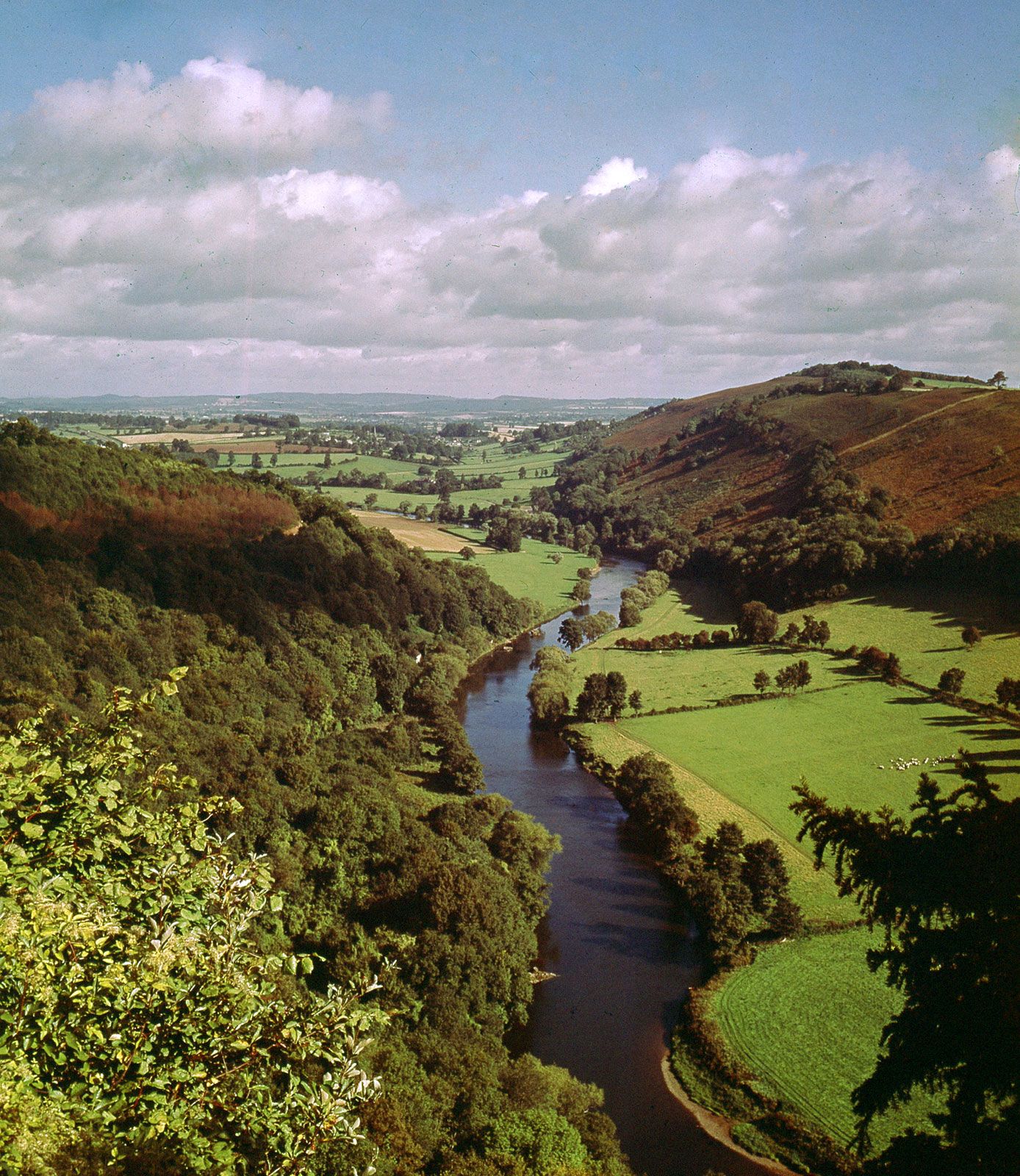
In Herefordshire, on the border with Wales, the River Wye flows through a beautiful valley and was, until the early 1970s, one of the best rivers for large salmon in the British Isles.
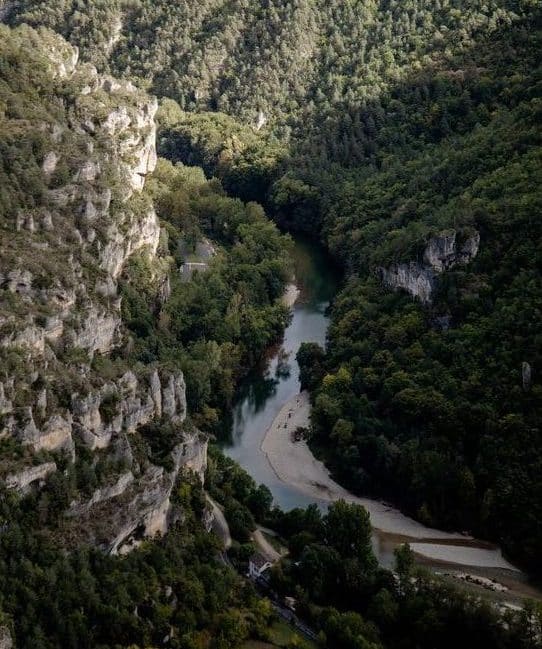
Apart from their tourist appeal, the Tarn gorges still have good public trout runs.
Of course, it was the French salmon and trout fishermen who were the first to expatriate for a few weeks a year to the better managed waters of the Anglo-Saxon, Scandinavian or Central European countries. Until the middle of the sixties, the salmon runs were maintained in the Breton rivers, in the Allier and the Gave d’Oloron. Maybe not anymore, as we had known them before the war, when rich Englishmen left Scotland or Norway to fish in Auvergne or on the Gave d’Oloron, but still enough, to satisfy local fishermen, many of whom made a living from the (tolerated) sale of salmon caught on their lines. Salmon was at the time (long before hundreds of thousands of tons were raised in aquaculture cages) the most prestigious and by far the most expensive fish on the fishmongers’ shelves.
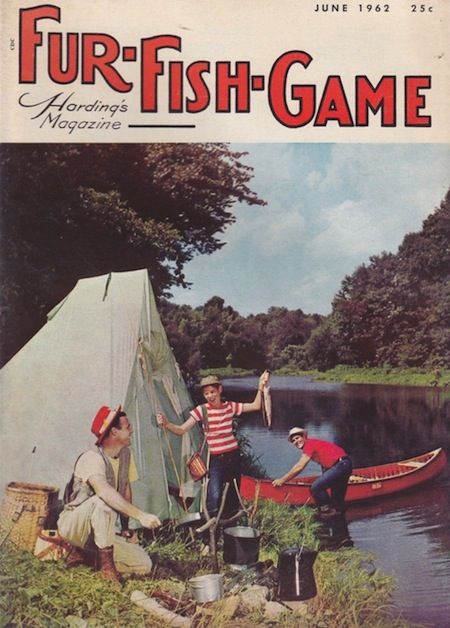
In the United States, "outdoor games", literally outdoor sports, whether for fishing or hunting, have been practiced in the family since the 1930s by millions of enthusiasts.
For the trout fishing trips, the Guillon Law voted by the Parliament in 1960, came unfortunately too late. This law, still in force, which prohibits the sale to restaurants of trout and grayling caught on the line, could not allow the salmon populations decimated by fishing with toc and maggot, to recover. Only the private fisheries of Normandy (near Paris) and Franche Comté (near Lyon and Geneva), could still compete until the early 70’s with the trout runs of the British Isles, Austria or Scandinavia. But in the waters of the public domain or managed by the AAPP (Associations agréées de pêche et de pisciculture), from the middle of the 60’s, whether for trout, grayling or salmon, there was very quickly, nothing or almost nothing to fish. The French fishing industry, although self-proclaimed, congress after congress, by its leaders as “the best and most democratic in the world” was in fact, even if it was managed by provincial notables, the exact reflection of a communist management with a Soviet sauce: nothing or almost nothing to fish, but free and for everyone. Let’s close the ban.
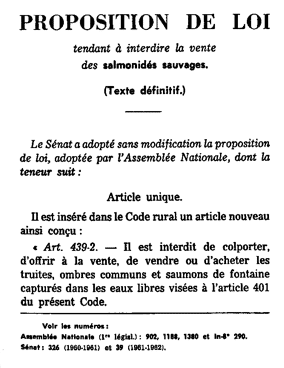
Named after Deputy Guillon, the eponymous law voted in 1960, prohibits the sale of wild salmonids.
From Austria to New Zealand, currency evasion.
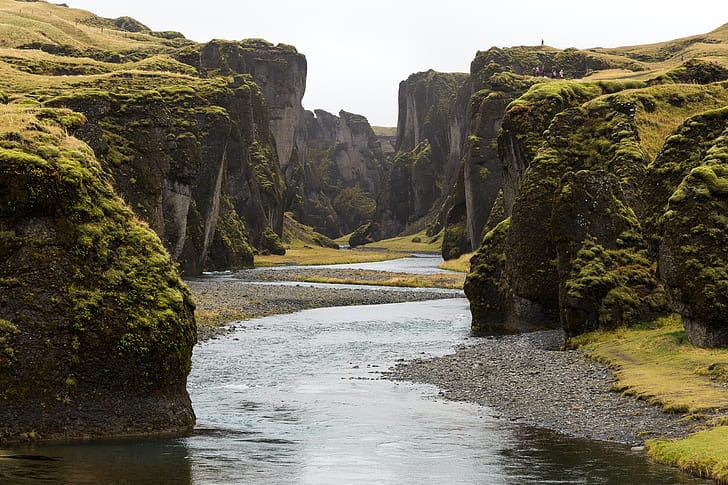
In landscapes of basaltic lava, Icelandic rivers that have never known the slightest pollution, attract salmon fishermen from around the world.
At first, Irish, Scottish and Austrian hoteliers and restaurateurs, then from more distant countries, as air transport developed, rubbed their hands to welcome French trout, salmon and pike fishermen. From the 80’s, more and more French sport fishermen flew to far away destinations such as Alaska, Quebec, Iceland or New Zealand.

Given the poverty of our waters and the deplorable management of our fish resources, Air France is not likely to make an advertisement based on sport fishing, to attract potential foreign tourists.
If there had been, as there were only in the middle of the last century, salmon in the Allier or the Pyrenean Gaves, large wild trout everywhere in our provinces, and pike in our public rivers, we would certainly be less numerous to spend our currencies and to brave the hazards and risks of fishing trips… However, after a century of industrialization, dams and pollution, followed by half a century of intensive agriculture with nitrates and pesticides, and especially of administrative and legislative negligence in terms of fisheries management, there is not much left today to fish in our sweet France, except for carp, bream, catfish or trout “with short sleeves” of basins or washing machines. The fishing trips have therefore a great future ahead of them and to be convinced of this, you only have to leaf through the specialized magazines every month, in which, with a lot of advertorials and advertisements, we are praised for the pikes from Ireland, the trouts from Argentina or New Zealand, the graylings from Poland or the salmon from Iceland or Russia.
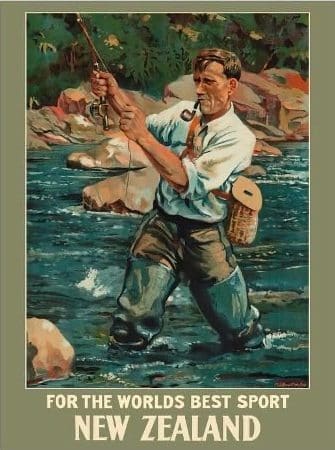
Yet at the antipodes, New Zealand, attracts every year many European fishermen including French.
